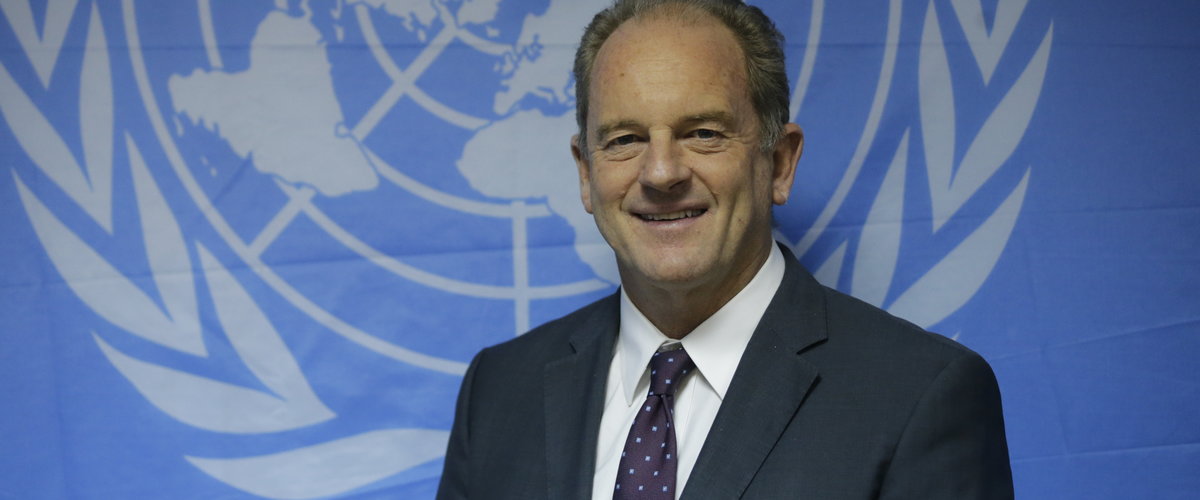U.N official urges “common strategy” on South Sudan’s political process

May 24, 2017 (NEW YORK) – The head of the United Nations peacekeeping mission in South Sudan (UNMISS) has urged the Security Council to unite behind a common strategy for advancing the political process and peace in the crisis-torn country.
David Shearer, while addressing the Council in New York, said that “unity of purpose will send the best signal to South Sudan’s political leaders to focus first and foremost on the plight of their citizens.”
Shearer, who is also the Special Representative of the Secretary-General in South Sudan, called for a “coherent and unified regional position” to aid political developments in the war-torn country.
The top U.N official also lauded President Salva Kiir’s launch of the national dialogue initiative on Monday, saying the dialogue will help to end the conflict, which has hit the nation since December 2013.
The national dialogue, initiated by Kiir, is both a forum and process through which the people South Sudan shall gather to redefine the basis of their unity as it relates to nationhood, redefine citizenship and belonging, as well as restructure the state for national inclusion.
A 94-member steering committee for national dialogue was sworn in to start the work of bringing harmony and peace to the people of South Sudan. The committee co-chaired by Abel Alier and Angelo Beda Bangboru comprises of distinguished members of the country including religious leaders, professionals and politicians.
Kiir, however, vowed not to accept the return of his former deputy-turned rebel leader, Riek Machar over fears of further skirmishes.
Shearer, however, expressed concerns that the national dialogue initiative excluded Kiir’s political rival and former deputy, Machar.
Meanwhile, the senior U.N official said although inter-communal conflicts persist across the country, the recent signing of a joint cessation of hostilities agreement between the Bor and Pibor communities in Jonglei with UNMISS mediation was commendable.
Shearer, however, lauded the work of humanitarian workers operating throughout the country and condemned what he described as the “unacceptable” levels of violence being directed towards aid workers, including detention, threats, arrests and killings.
On Wednesday, the Council began unanimously adopting a resolution renewing until 31 May 2018 a host of sanctions, including a travel ban and asset freeze imposed by its resolution 2206 (2015), on those said to be blocking peace, security and stability in South Sudan.
(ST)
